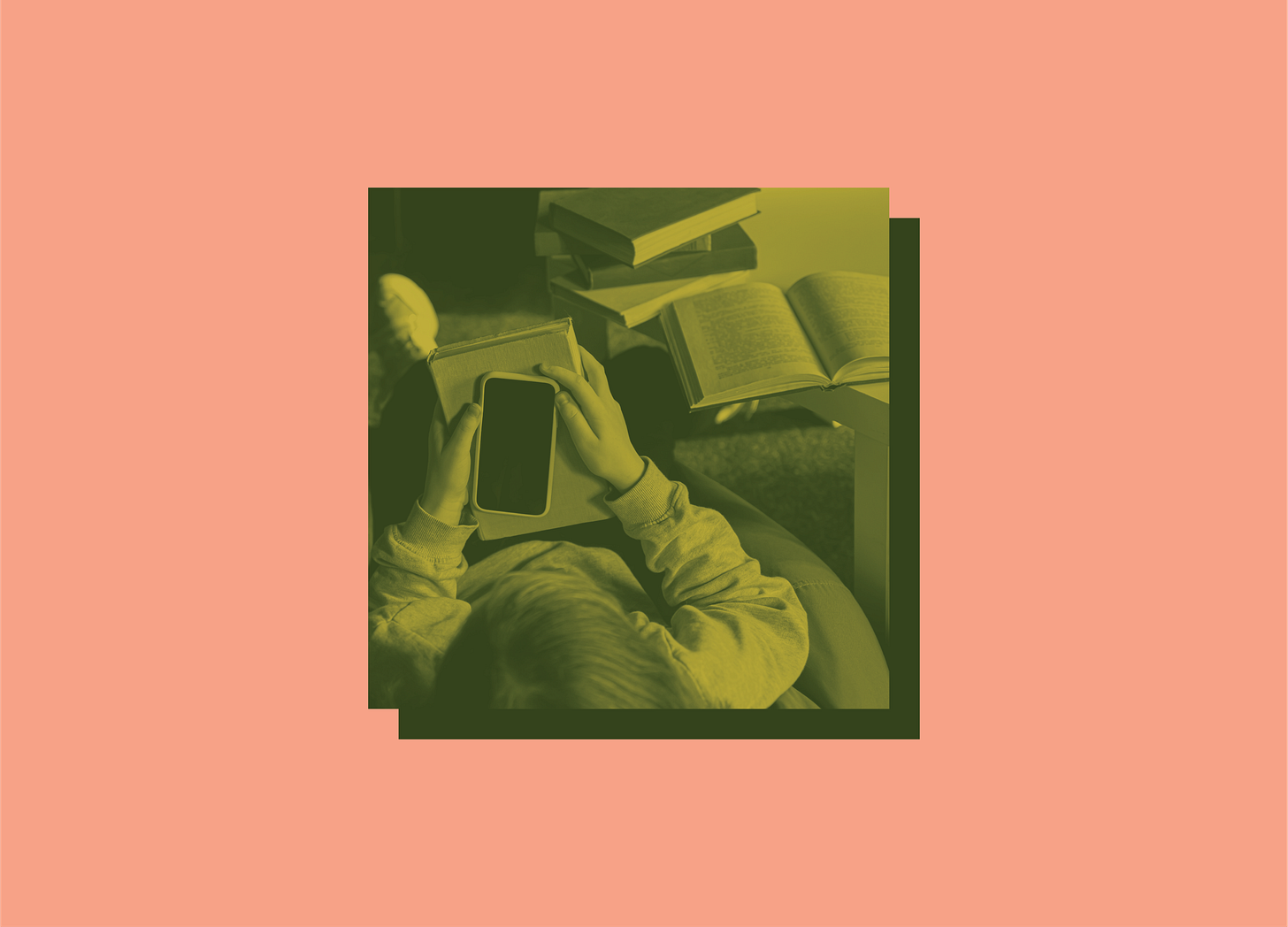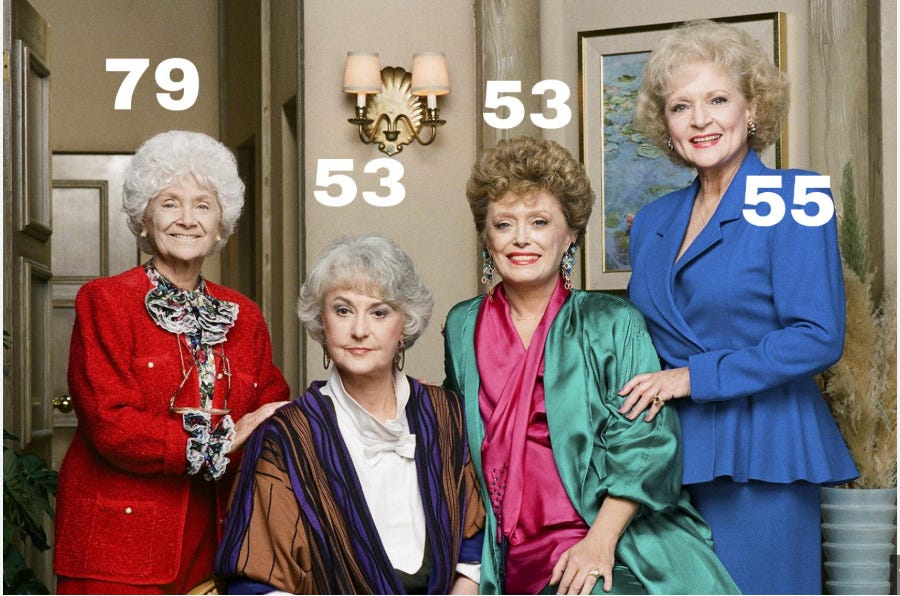The End of Reading and Wrinkles
+ The Life of a Showgirl
Trends I’m Tracking
The End of Reading in the Age of Emotion
Americans are reading way less than they used to. A University of Florida study found that reading for pleasure among Americans is down about 40% in 2 decades. Even I’m doing it less. Short-form video is just so appetizing. After the two hour bedtime routine with my kids, nothing feels more satisfying than watching people I do not know tell me about things I do not care about. I can’t explain it. But I’m sure you get it.
Last year, panic rippled across academia after an Atlantic article reported on students from elite schools who can’t read books. Professors from Columbia, Georgetown, and Harvard shared observations about students who could not even remain focused on a singular sonnet, so books seemed out of the question.
Not wanting to read is part of the problem. Not being able to read is the other part. I don’t mean being completely illiterate, I mean not understanding allegory, illusions, metaphors, and deep analysis. The National Association of Education Progress released data from the 2024 standardized tests. Seventy percent of American students are not considered “reading proficient” by 8th grade.
Some shrug this off: “Who cares! We have new ways of getting information. Reading has become inefficient!” But these new ways of consuming information, audio and visual most often, have left us vulnerable to charismatic charlatans and unable to judge messages based on objective standards.
Adam Grant said it best when he wrote:
“The best way to gauge the quality of someone’s ideas isn’t to listen to them talking. It’s to read their writing. Compelling speakers can mask weak logic with strong charisma. Putting key points on a page exposes flawed reasoning.”
Only so much charisma that can be transferred through a page. But in person, charisma knows no bounds. I attend 60 corporate events a year. I have seen hundreds of speakers. Believe me: terrible ideas wrapped in shiny packaging are applauded all the time.
Reading ushered in an era of logic. Superstition, conspiracy, and mysticism were pushed aside by argument, analysis, and dispassionate engagement. Now, the decline of reading and the rise of personality-driven, emotion-heavy information has become a destabilizing force.
“Why does [TikTok] benefit populists disproportionately? Because, almost by definition, populism thrives on emotions, not thoughts; on feelings not sentences. Populists specialise in providing that rush of certainty you get when you know you’re right. They don’t want you to think. Thinking is where certainty goes to die.”
(Found this quote through James Marriott in Culture Capital)
Hope is not lost. Every major technological shift has sparked moral panic before society found its balance. But as algorithms serve us more emotion and less nuance, it’s worth remembering what reading gave us: patience, empathy, logic, imagination. Reading doesn’t just inform us — it forms us. And if we lose that, no amount of charisma or clever content will be able to fill the gap.
The New Face of Control
A few years ago, I worked with the Aesthetics Institute where I focused on generational perceptions and expectations of beauty. At that time, minimally invasive procedures were getting better, cheaper, and more accessible. Social media introduced us to “Instagram Face,” and the market for appearance upgrades exploded. Over the past 15 years, US expenditure on cosmetic surgery procedures has more than doubled. We don’t even need the data to prove it—you can just look around.
A 2023 viral meme showed the ages of the Golden Girls’ actresses during the first season of the show.
And this is Jennifer Lopez at age 56.
J.Lo may be an extreme example, but we have gone all in on beauty. Gen Alpha spent nearly 4.7 billion dollars on beauty products in 2023 alone. (Reminder that the oldest member of Gen Alpha is fourteen).
And it’s not just girls and women. Men are also steeped in appearance content. What starts as mouth taping, creatine, cold plunges, and jawline exercisers can morph into buccal-fat removal, Botox, and eyelid surgery. Joshua Hunt captured this shift perfectly in GQ, writing about the podcasts shaping male beauty standards and the increasingly blurry line “between where health ends and aesthetics begin.”
Several factors drive this boom: weight-loss drugs creating new plastic surgery demand, the affordability of non-surgical treatments, and the way social media has turned beauty itself into a monetizable skill set.
But beneath those obvious reasons, I think that at least part of this phenomenon is a quest to regain control during an especially chaotic time. It’s a form of self-management that’s both personal and public. We modify the body to project calm, youthfulness, or discipline in an era that feels frenetic and overwhelming. The creams, procedures, and filters aren’t just about looking better; they’re about feeling like we have agency over something.
Beauty trends tend to move on a pendulum, but I do think the days of aging like the Golden Girls are behind us. Aesthetic technology is improving all the time, our perceptions of beauty have been altered, and the “control what you can control” mindset will continue to impact how we present ourselves.
What I’m Working On
It’s been a wild fall. I spent time with professors at Michigan State University discussing what they’re seeing in today’s students, with legislators debating phones in schools and the growing threat of political violence, and with business leaders in Idaho and Utah exploring economic development and how to prepare a new generation for the workforce ahead.
I was also honored to join a group of tech CEOs in San Jose for a wide-ranging discussion that touched on tariffs, H-1B visa changes, AI speculation, young-grad employment rates, and the shifting American talent market. Many of the leaders who worked in tech through the dot-com bust are wondering whether history is repeating, rhyming, or taking us somewhere entirely new. Stay tuned.
Next up: Speaking engagements in Chicago, Phoenix, Anaheim, Minneapolis, Nashville, and Toronto.
/Misc.
I love Taylor Swift’s new album. The bridge of Eldest Daughter is so good. The Fate of Ophelia music video is incredible. The Elizabeth Taylor chorus is a blast. I also enjoy watching haters on the Internet melt down every time she releases a new album. Just let us be happy! Not every album has to be Folklore!





Important update: After I published this newsletter, I learned from many very devoted Golden Girls fans that this meme does not have the correct ages. Betty White is 63, Bea Arthur is 63, Rue McClanahan is 51, and Estelle Getty is 62. Shame on me for trusting a meme! Thanks for the texts and emails from many of you.